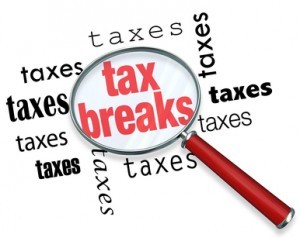Ruth Ford Elward's Blog, page 2
November 18, 2015
Author Pages…an In-Depth Version
For freely offered writing Resources go to RuthFordElward.com
AUTHOR PAGES…an IN-DEPTH VERSION
New authors have been blessed with many ways of getting their books out there through self-publishing. Because of this, there is more competition especially if one has any hopes of being noticed. Many writers agree that actually creating a book is far easier than marketing and promoting it.
Just as self-publishing has created tremendous change, along with that the marketing and promotion of a book has changed thanks to the popularity of the internet. Authors are encouraged to make a website as a way of getting their name into the mainstream.
Authors might mistakenly think that they should have their books finished before they start marketing. Technically speaking that’s true, but marketing YOU as an author should start immediately.
What many new authors get wrong, though, is believing that an author website is only supposed to be for their book. Authors don’t just promote their book, they have to promote themselves as well.
Authors need to establish an audience for themselves even before their book is complete. This is accomplished through the use of a blog where the author can discuss any variety of subjects that appeal to them.
By offering short videos or joining forums and interacting with their demographic audience also helps.
It doesn’t just have to be something that somehow relates back to their book either. The idea is for the author to develop a strong online presence as well as an audience. Then, once their book is complete they can release information about that and already have potentially interested readers familiar with their writing style…..and them!
With all that aside, loyal readers are going to be more likely to take the time and leave a positive review. This helps draw in new readers from other sites eventually creating a snow ball effect.
If the author is diligent they can get featured on other sites and be asked to write guest posts. When this happens, the site owner will include a small blurb about the writer, such as their site’s web address or what works they have published, maybe something about their background and interests. Additionally, the guest writer can advertise on their own site, what they’re about to do encouraging their audience to give it a look.
Authors can also create a tag line for their website, giving them one more thing for others to associate with their name. A tagline is basically a very short and concise saying that expresses what the author, or the book, is about.
An example is Thomas Richard Harry, who has the tagline of “Challenging today’s party politics.” Another example is author Jim Flinchum, “Advisor for the rich and author for all.”
Taglines are a nice touch to add to a website, but ultimately they aren’t going to make or break whether an author is successful. It can help to make a website or an author a little more memorable though.
Technically there’s nothing saying that an author needs to have one, but having one certainly won’t hurt, either.
November 11, 2015
Formulating the Game Plan – Part 2 of 2
For freely offered writing Resources go to RuthFordElward.com
PHASE TWO
This is where you need to start comparing one publishing avenue to another. They are not created equal. Traditional publishers can offer publicity packages as well as publishing, while others will offer that as a value-added service for an additional fee.
With the book still in its infancy this is the perfect time to research publishers that share your vision for your book or decide on whether to go the self-publishing route. Research those companies and whether they offer value-added services.
This is a great time to find a graphic artist, or if you are creatively inclined, to design the book’s cover, yourself. Keep in mind all of the great elements that make a great book cover. Many elements of your press kit can be put together now, and have a professional picture taken of yourself (make sure to get a copy in color and in black and white).
This is the perfect time for creating lists of places that might enjoy having you come and speak, including writer’s conferences, organizations, and trade shows.
Create a list of topics that you feel comfortable addressing. For a complete listing of conferences, you can visit: http://writing.shawguides.com/ and click on the dropdown box that lists ALL conferences not just writing conferences.
Continue writing your book
Research agent/editors or publishing
Write query letter and send out (a LOT if considering traditional publishing)
Find graphic artist to create logo and design book cover
Start creating contents for press kit
Contact writer’s conferences for speaking engagements
Contact outside of the box venues for speaking/signing engagements
Phase Three
It is time to take stock of your own neck of the woods.
What typically goes on there seasonally?
Is there some way you can tie your book into local events? If so, create a press release around those events and reach out to area schools to see if they’d enjoy a visit from an author living in their town.
Make sure to schedule the visit for a time when your book will be out.
Once you’ve secured some events, make sure to have a calendar listing them on your website and post these events on your Social Media pages just before they are to take place.
This will give you additional topics to blog about on your website. Keep the blog posting up on your website and get even more social by joining forums and groups that are relevant to your book’s topic, genre or in the field of writing, publishing, or marketing a book.
Read all you can on Google AdWords, Facebook ads, and Social Media campaigns. http://www.wordstream.com/ has a wealth of free information about marketing ANYTHING on the internet.
Take the time to create 5-10 short Google AdWords ads as well as 3-5 Facebook ads. Don’t launch them, but have them ready to go, because soon, they…and your book….will be hitting the air waves.
Make list of local events to tie your book into
Create press releases
List all planned events on your website and Social Media Pages
Join Forums and Groups pertinent to your book’s topic
Create Facebook ads and Google AdWords Ads
Phase Four
Considering that the book has either just been released or is about to be. Now is the time to reach out to owners of various blog sites and offer to do blog tours, also schedule Twitter parties, a few webcasts, and don’t forget bookstores (if you have a printed version)!
Many schools and book groups LOVE to have Skype sessions LIVE with new authors.
Reach out to the forums and groups you’ve already made contact with and see if they would like to schedule something and don’t be afraid to ask if they know of a group or book club that would enjoy a LIVE session with an author.
Send out your press kit to local radio, television, and newspaper outlets. When you feel more confident in your interviewing skills, you will want to send a digital copy along with a short but sweet email to the following outlets on this list:
Radio
http://www.usnpl.com/index_radio.php
Television
http://www.usnpl.com/index_tv.php
Independent Bookstores
http://en.wikipedia.org/wiki/List_of_...
One last note, these four phases can take as much as 12 months or longer to accomplish so be realistic when putting together a timeline that includes the writing, publishing and marketing/promotion of a book.
November 4, 2015
Formulating the Game Plan – Part 1 of 2
For freely offered writing Resources go to RuthFordElward.com
FORMULATING the GAME PLAN – PART 1 of 2
A typical book including the writing, through to the promotion of the book requires a game plan. The fact is, many who are new to the entire process overlook or don’t understand that many of the components must happen simultaneously and often many months prior to the actual release of the book.
The sample game plan timeline that follows is an adjustable schedule and is the ‘ideal’ version of the plan. Like pieces in a puzzle, once they begin to fall into place, a very clear picture of who you are and what your book is about will be obvious to your readership. 
Phase One
Once you’ve decided to write the book, you will want to talk about it on your social media. Post about the process and build interest in its ongoing genesis. Many believe that they must wait until their book is completed to create an author page, but this is actually the BEST time to start your author page so that the public begins to know who you are.
If you don’t have the time, or inclination, to create and maintain a blog, then this would be the time to hire someone to create at least 5-10 posts a month for your author’s website.
Research, outline and begin writing book
Create author website that includes blog
Create Social Media Pages
October 28, 2015
Publishing and Marketing Terms to Know
For freely offered writing Resources go to RuthFordElward.com
PUBLISHING and MARKETING TERMS to KNOW
CRM – Customer Relations Manager: This is the person that will be most likely scheduling, your book signings in the bigger chain bookstores if you go with a traditional publisher.
Press Kit: Collection of pertinent information about the book, the author, and any events in conjunction with the book(can be digitalized). It is designed to give the media a prompt covering of what you are promoting, an idea of the “who, what and where” of a new product or upcoming event.
Media Kit: Easy to understand general information including background history and bio. There should be a timeline of important milestones, awards and statistics, including reviews, anything that adds credibility. Some even include suggested questions to ask.
Lead Time: How much time before the actual event takes place.
Review Copy: This is often an uncorrected proof that is sent to reviewers to read (a sneak peek) so that they can send a review of the book prior to publication. This is also called an ARC.
Blurb: A short, often catchy phase or a few sentences describing your book or something about the author.
Press release: A short journalistic article written to highlight some event in connection with the book, or to announce the accomplishment of something concerning your book or the book release itself.
Business card: A well done personalized business card to hand out that contains contact information.
Publicist: Someone who is paid to promote the author and the book, usually for a set fee per month.
Social Media: Twitter, Facebook, Google+, etc…. social media platforms that promote the author and the book.
Platform: This is the author’s promotional marketing plan and contains many components, including social media, press kits, press releases, marketing materials/strategies, events, speaking engagements, followers on blog, as well as established presence in some area or field.
Distributor: This is the place where the books are warehoused, either electronically or in printed form and from which the major bookstore chains purchase the printed version.
PPC: Pay per click. Internet marketing ads.
Blogs: Short articles/posts written to improve search engine ranking on the internet, as well as offer insightful information or entertainment in relation to the book, author, or whatever the author deems relevant.
Author’s page: a webpage that promotes the author and the authors’ works
SEO: Search Engine Optimization: This increases the odds of a first page ranking within the most popular search engines.
ALA: American Library Association. This is the governing group for libraries across the US.
October 21, 2015
Publishing: Survive It
For freely offered writing Resources go to RuthFordElward.com
PUBLISHING:SURVIVE IT
Speak to anyone who’s built a home and they will tell you that they nearly divorced their significant other, or that they would NEVER do it again. BUT, they are ecstatically happy with the end results. And you will be, too.
While you go through the publishing experience, it is important to keep yourself positive and to picture the end result (a published book). It can be a stressful time, so have in place rewards for reaching milestones along the way. Have some stress relieving activities to fall back on and it doesn’t hurt to have access to some kind of coach that understands what it takes to accomplish what you’re undertaking.
Many people write books. Not all of them take that next step and have it published. The simple reason is that publishing, because of all the steps that are necessary, is often the place where authors reach that critical breaking point.
Having the determination to stay on your feet, to get back onto your feet should you stumble, is the key to surviving and thriving.
Creative Coaches
With the flood of new authors and wanna be authors on the market, creative people have had to turn to others in the field for support. These people are similar to Life or Success Coaches in that they are able to offer clarity, insight, and comfort to other creative people as they maneuver through the writing, agent, publishing and promotional processes. Many well-known writers use creative coaches and swear by their support and the services that they offer.
An internet search will return many names, but keep in mind that finding someone who deals specifically with writing is what you’ll need. Make sure that the creative coach has been a writer themselves, has direct experience with the process, and has successfully maneuvered through them him/herself. They need to be in a position of strength and have tremendous insight to offer those who are just starting into the field, as well as those who have been established for many years.
Creative coaches can do any of the following:
• Offer suggestions for avoiding or getting out of writer’s block
• Support the creative process by suggesting activities or assignments that will lead you to a greater understanding of your own creative processes
• Assist in light editing, or content suggestions
• Offer insight into the writing, publishing and marketing aspects of the business
• Listen when you need to vent, and offer suggestions for dealing with the stress
Being a creative person in the current economic and social climate can often be daunting and depending on where you live, may not be viewed as being a viable occupation or worthwhile vocation.
Having someone who understands writers, and who can support you as you walk through the entire process, can make all the difference in whether or not your work will reach the light of day.
They can, literally, become the wind beneath your wings.
October 14, 2015
Even Writer’s have to Think about Taxes
For freely offered writing Resources go to RuthFordElward.com
EVEN WRITER’S have to THINK about TAXES
Establishing yourself as a viable business person and keeping track of all expenses can add up when tax time rolls around. Almost all expenses incurred for advertising, marketing, publishing, and promoting can be deducted. This would also include equipment (like your computer, computer chair, desk, lighting, etc…).
In some states it is also permissible to deduct a percentage of your electric bill and the mortgage IF you dedicate a space solely for work purposes. In other words, that home office…is worth something.
Other deductible expenses can include the shipping fees, the cost of the design layout, social media management and any other expertise that you paid for and directly resulted in the production of the book, or its sale, distribution, or use. Your gas to and from events may even be deductible and let us not forget the cost of writing seminars and book conferences. 
Find a good tax professional that knows how to deal with this type of business.
While you may not be making a living from your books, initially, you will still have to pay taxes on the money you DO make if you make more than $600 for the year. Penalties for not reporting your sales (over $600) can be stiff.
As a writer you are, in effect self-employed and starting your own business. That business is YOU. Reading and educating yourself about the self-employment pros and cons can be invaluable as you continue to build toward becoming a full time author/writer.
October 7, 2015
Audio Book Versions
For freely offered writing Resources go to RuthFordElward.com
AUDIO BOOK VERSIONS
Authors in the digital age have a number of new advantages available to them thanks to technological advancements. Internet sites like Amazon and Smashwords embrace self-published books in various formats.
Most writers tend to focus on getting a print or electronic version of their book out on the market. However, there is another growing audience available that doesn’t like to physically read for a variety of reasons.
Therefore, this growing audience chooses to purchase in audio book format.
Some of the reasons for preferring an audio format would include:
• readers that find themselves commuting in vehicles for long periods
• readers that find it’s easier for them to listen while cleaning house, walking or exercising
• readers that have problems with reading electronic versions or printed copies for long periods of time. 
Creating an audio book version doesn’t have to be daunting. Being realistic is one of the most important aspects of it however. It is not a matter of just recording it yourself with any one of a number of programs that are available.
If you’re considering creating an audio book, create a quality one. Most programs available produce very low quality audio and unlike professional narrators, authors tend to not have the same voice talents.
Simply reading a book and making it interesting for listeners isn’t the same thing. An author should want someone with narrating experience reading their book, to ensure that the listeners become enthralled with the words and can clearly imagine the world that the author has created.
Professional narrators also have options for higher quality recording.
Whatever the reason is for the growth by leaps and bounds of the listening audience, if your book is not a best seller, the costs to convert a body of work into a quality audio format can be quite high.
There are quite a few different companies that help authors turn their work into audio books. One of the most well-known is ACX. ACX is part of Audible.com, which is owned by Amazon, hence why it is so popular. They aren’t the only ones out there though. eBookit offers recording options, as well as Infinity Publishing and the UK operated Dynamic-Ram handles recording as well, just to name a few.
Converting your work into an audio book is just another way to get your work in front of more people.
September 30, 2015
Timed Delayed Release Dates
For freely offered writing Resources go to RuthFordElward.com
TIMED DELAYED RELEASE DATES
When self-publishing, writers aren’t going to have the resources available to them as they might with a traditional publisher. Of course, at first, it is a lot easier for writers to self-publish. First time writers will want to get the book published and up for sale the moment they’ve completed it.
For a writer’s first book, this is understandable, but writers need to keep in mind that they still have to create a buzz around the book. Just because the book is on the market doesn’t mean people are going to see it, especially when you consider how many other self-published books are constantly coming out.
Once a writer begins to establish themselves, they’ll develop an audience, one they’ll ideally have some form of communication with, whether that is through a personal page or a social media site. In these situations, writers can benefit from announcing their release date ahead of time and warming their audiences’ interest with teasers of some sort.
If you are someone who can stick to deadlines, this first scenario is the easiest way to come up with a realistic release date.
Start by thinking of a date while you’re still writing your book and then work backwards from that date with a list of items that you want to have in place prior to release. Make sure your list has a time frame for how long each item will take to accomplish. If you find you need more time or less time, you can then adjust the release date accordingly, because you haven’t announced it yet.
Here is a second scenario, this one is a mindset amongst some authors and this version is used by many traditional publishers for setting up a release date.
This one recommends waiting and once the work is completed, focus solely on making sure the body of work is ready for the market by giving out samples so positive reviews can be acquired. In addition to waiting for positive reviews, you also wait for feedback, so if there’s something that seems to be unpopular within the book an author will have time to fix it. The marketing and promotional efforts aren’t started with any urgency until these two things are accomplished and then a release date is set.
Personally, I prefer the first scenario, planning ahead of time. I don’t mind deadlines and it helps me to stay focused and on track. I usually accomplish more than what I was expecting to since I often ‘pad’ my time frames on how long each item will take to get done.
In addition, there is almost always something you haven’t thought of that will require your attention and if that doesn’t happen, you’ll have extra time to check out new and exciting ways to get your work noticed.
I also believe through your social media or blog ‘teasers’ you can get the feedback you need from your audience about areas within your book that you may want to consider adjusting. Unlike in the second scenario, you don’t have to wait for setting up the release date.
Once you have publicly announced your release date, you must stick to it.
Setting an inaccurate release date is something that can end up hurting an author. Even famous authors can sometimes fall into this trap, where they set a release date and the actual release of their book is nowhere near that date. It can cause readers to lose interest, or just plain forget that the book was supposed to come out in the first place.
Especially when writing a series, this can happen, therefore, I highly recommended that authors have a solid idea of the plot of their next book, sometimes even having a few chapters written before the first book is released.
Again, ‘teasers’ can be used based on a few chapters so that the audience is assured that the author has a decent pace going and they won’t have to wait for a year or so until the next release.
Planning a release date should be one of those things that you look forward to, similar to the anticipation of giving birth. In many respects it is the book’s entry into the world and deserves your diligent attention.
September 23, 2015
Timing is Everything
For freely offered writing Resources go to RuthFordElward.com
TIMING IS EVERYTHING
If there is one piece of advice I have for marketing your book that is absolutely critical, it would be don’t wait until it’s in hand. Waiting is the worst of all possible plans, and though it sounds counter intuitive to promote what you don’t yet have in hand, it can make the difference between a splash and a dribble on the book scene.

Most experienced authors will suggest that a book’s ‘campaign’ begin at least 3-4 months prior to the projected release date.
For a printed book, this has to do with the book stores lining up their calendars in advance, take their lead as an example, afterall; book signings have to be scheduled well in advance so they can be advertised.
For digital books, the lead time is necessary so you can warm up your social media through various campaigns for what is to come and give enough time for search engines to rank pages and content referring to your book.
Recognition doesn’t happen overnight and it takes time and planning so start well ahead of your release date.
Additionally, many book conferences will book at least 4-6 months out, so contacting them to set up a presentation (have a list of possible topics) is just good planning.
As discussed before, generating press releases, publicity materials and a press kit will take some time. Don’t forget the time it takes to send advance copies out and then the wait for reviews is another reason why lead time is critical.
The take away from this is: DON’T WAIT. It is never too soon to start planning.
September 16, 2015
Social Media…Get Friendly
For freely offered writing Resources go to RuthFordElward.com
SOCIAL MEDIA…GET FRIENDLY
Even if you are not the most gregarious of personalities, you are going to have to either fake it until you make it, or hire someone to be ‘you’ on your book’s social media pages. Having a Facebook or a Twitter page is a great way to stay in touch with fans.
These pages can serve as free promotions, if not used exclusively for promoting. People can share these pages with their friends which can draw in new readers. These pages give the author the ability to directly communicate with their fans, to appear human not just as an author but someone that experiences life much like their audience does.
These pages can also be used to get feedback for future works, to understand what people liked about your book, what your reading audience would like to see more of or even what wasn’t particularly liked.
This information can be extremely valuable to an author looking to create a book series.
Along these same lines, a blog can be most beneficial. A blog can be created around a specific book or series of books or even a particular character.
Personally, I think it’s better to create a blog around the author and their complete works. This gives a central location for not just the authors’ work but gives a platform for an author to show their writing style in expressing their views and ideas about other subjects.
Bottom line, authors need to keep their intended audience in mind and should promote their book amongst those circles they deem will help in increasing their audience base. Using sites like Reddit, Goodreads, Shelfari, Library Thing, BookBub are all useful for they have clearly defined groups, some will incur a cost, most do not.
The only word of caution is to not over involve yourself with too many sites. It is better to choose a few that you can maintain and participate in comfortably then to join and not participate in at all.
An authors’ time is precious, use it wisely.
Ruth Ford Elward's Blog
- Ruth Ford Elward's profile
- 9 followers






